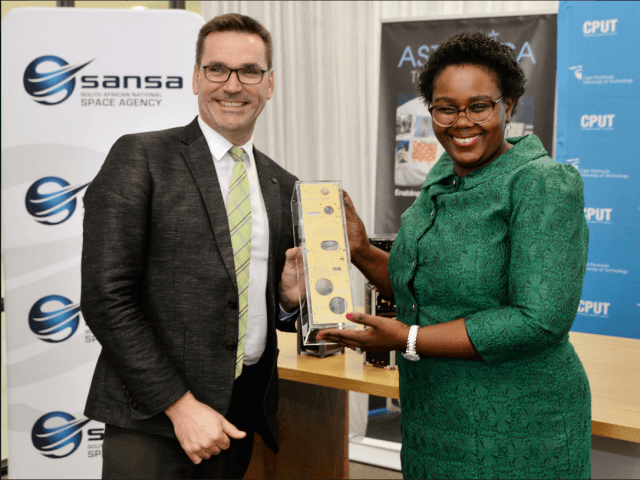Nanosatellite, a provider of innovative remote sensing and communication services has been launched again in South Africa.
Dubbed ZACube-2, the continent’s most advanced nanosatellite was taken into space last week with the Russian Soyuz Kanopus mission from the Vostochny spaceport. It left the Earth alongside small satellites from the US, Japan, Spain and Germany.
The satellite is a technology demonstrator for “maritime domain awareness” that will provide critical information for the country’s oceans economy. It was developed by some of South Africa’s youngest and brightest minds under a programme representing the country’s diversity, in particular, black students and young women.
See Also: Top 10 Memorable African Tech Moments of 2018 – Full Recap
ZACube-2 will monitor the movement of vessels along the South African coast with its automatic identification system payload. “This satellite will help us monitor our ocean traffic as part of our oceans economy and also monitor veld fires and provide near-real-time fire information ensuring a quick response time by disaster management teams,” Says SA’s science and technology minister, Mmamoloko Kubayi-Ngubane.
The timing for the satellite is good because it exemplifies the significant milestone in South Africa’s drive to become a major player in the innovative utilisation of space science and technology in responding to the government’s yearnings.
ZACube- 2 weighs up to 4kg and it succeeds the initial nanosatellite launched into space by being three times the size of its predecessor – TshepisoSat.
“It is regarded as the continent’s most advanced cube satellite and is, in fact, a precursor to the MDASat, a constellation of nine nanosatellites that will be developed to provide cutting-edge very-high-frequency data exchange communication systems to the maritime industry,” the department said.
The nanosatellite project will be managed by the South African National Space Agency, together with the University of Montpellier, the French Embassy and the Paris Chamber of Commerce.
